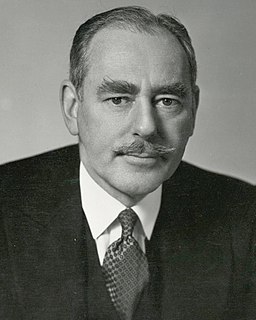A Quote by Pete Hoekstra
Foreign policy is painstakingly difficult, and if there is to be anything gained from the experience in Libya, it is how not to conduct world affairs.
Quote Topics
Related Quotes
We need a leader who has a sense of balance, an understanding of the ebb and flow of history and a sense of our country's unique place in it. This is a foreign policy debate, and you cannot conduct foreign policy without a sense of what we are fighting for. And any President who can reduce the conduct of this country's affairs to a morning's attack by a bunch of demented fascists does not, in my view, understand what this great nation is all about.
I spoke with Gerhard Schröder about a lot of things, including foreign policy. Schröder knows how important European policy is to me personally. I have worked together with Angela Merkel on European policy for many years, so I was surprised when Volker Kauder who has little experience in European policy, claimed that I had not represented German interests in Europe. That's an example of how the conservatives conduct an election campaign.
The rest of the world cares about how we conduct our affairs because they then take that lead. We're the only leader in the world today. Some are wishing us well, others think that we're down and are not going to get back up again, but they are all watching with great interest to see how we conduct our business over the next couple of years.
Most Americans are close to total ignorance about the world. They are ignorant. That is an unhealthy condition in a country in which foreign policy has to be endorsed by the people if it is to be pursued. And it makes it much more difficult for any president to pursue an intelligent policy that does justice to the complexity of the world.
The rest of the world cares about how we conduct our affairs because they then take that lead. Were the only leader in the world today. Some are wishing us well, others think that were down and are not going to get back up again, but they are all watching with great interest to see how we conduct our business over the next couple of years.
Foreign policy commands attention when it's crisis management. A street revolt breaks out in Egypt or Libya or Kiev and everyone asks, how should the president respond? Now these are important parts of America's role in the world, but they are essentially reactive and tactical. The broader challenge is to lay down a longer-term strategy that endures after the crisis of the moment.





























